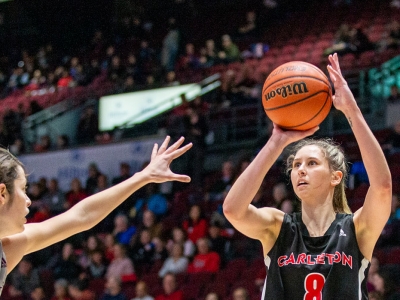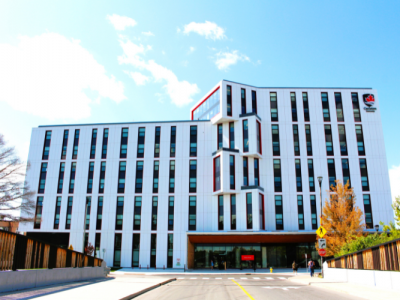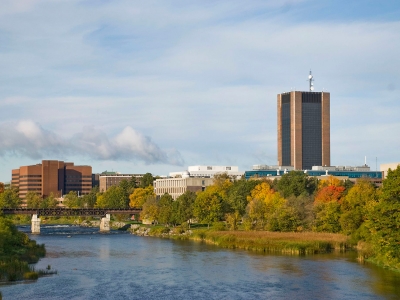Duncan McCue, an award-winning CBC broadcaster and leading advocate for fostering the connection between journalism and Indigenous communities, is joining Carleton University’s School of Journalism and Communication.
McCue will formally take up a new tenure track position on July 1, as an associate professor, specializing in Indigenous journalism and storytelling. In addition, McCue will also play a key role in working with Carleton colleagues to launch a new journalism skills certificate on the ground in Indigenous communities.
“I’m thrilled to join Carleton’s faculty, and especially excited to help create a new intensive Indigenous journalism certificate, designed to meet the needs of remote learners,” said McCue. “Journalism schools have struggled to attract Indigenous students, and Carleton is committed to changing that. Canada needs more Indigenous journalists and storytellers.”
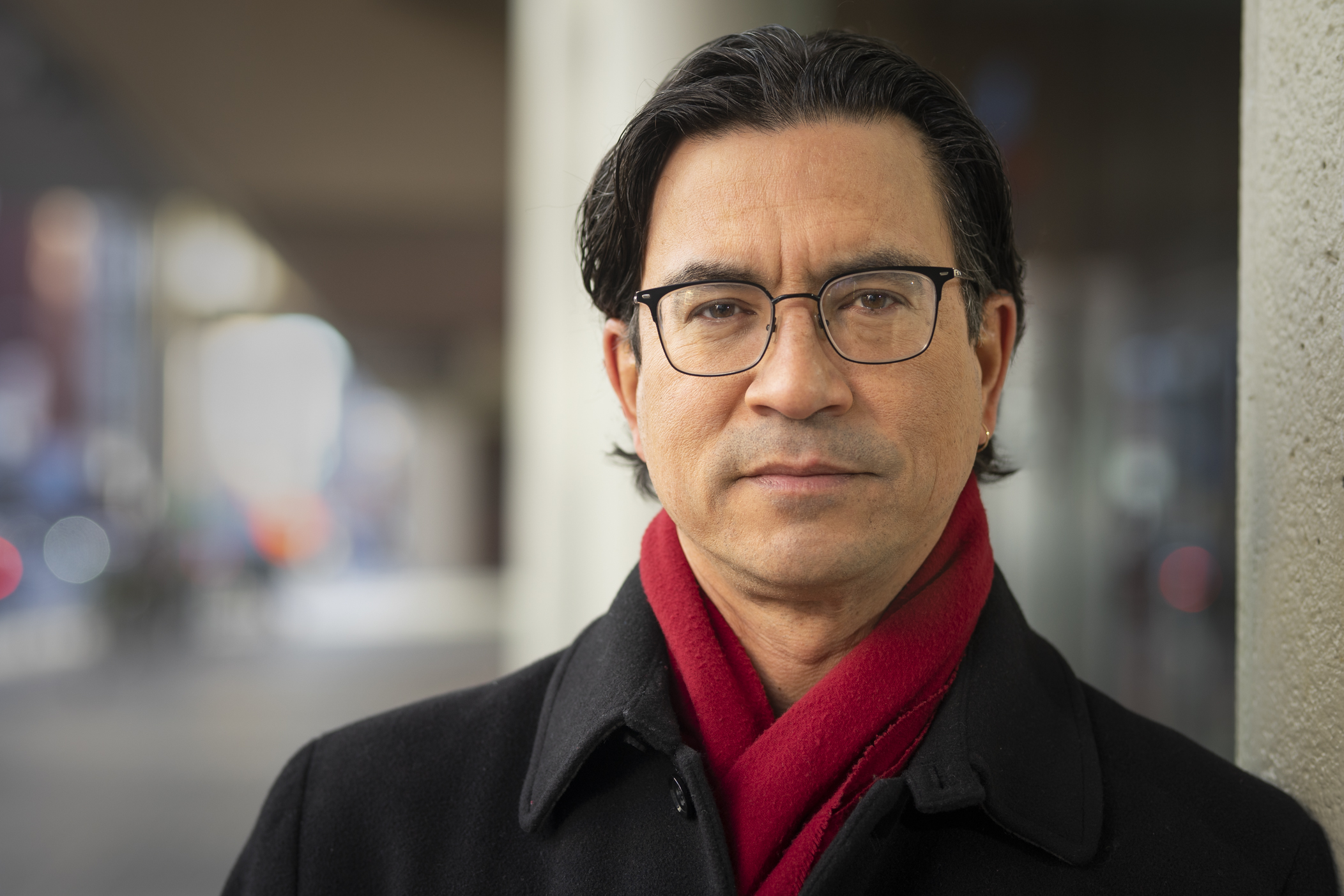
Duncan McCue joins Carleton’s journalism program [photo: Sinisa Jolic/CBC]
In recognition of the many barriers that prevent Indigenous people from gaining access to journalism education and training, the new certificate program will be accessible in Indigenous communities.
The journalism skills certificate will be developed in wide consultation with Indigenous scholars at Carleton and beyond, with cultural and community leaders. Ultimately, the program would be built on partnerships with Indigenous communities.
Another key element will be training – delivered with the help of Teaching and Learning Services at Carleton – to build a team of Indigenous journalists to deliver the new program.
“The core philosophy of the program will be to find a way to give young people in Indigenous communities a chance to explore some of the fundamentals of journalism and to contemplate the possibility of a career in journalism without having to leave home,” said Prof. Allan Thompson, Journalism Program Head and Associate Director of the School of Journalism and Communication.
“It is very exciting to have someone of Duncan’s calibre join our team,’’ Thompson said. “In addition to being one of the top journalists in this country, Duncan is a remarkable journalism educator. I’ve seen him in action in our classrooms as a visiting fellow and I simply can’t wait for him to join us full time.”
McCue takes up the position at a critical time for Carleton’s journalism school – the oldest in Canada – as it continues to confront the challenge of reversing decades of systemic racism and takes concrete steps to change journalism and also to encourage more Indigenous students to explore careers in journalism.
“Duncan McCue will be a great addition to the Carleton Indigenous community and play an important role in the growth and development of the Carleton University School of Journalism and Communication, which has a long-standing track record,” said Kahente Horn-Miller, Carleton’s Assistant Vice-President (Indigenous Initiatives) and an Associate Professor in the School of Indigenous and Canadian Studies.
“He will be integral to the growth and enhancement of the School with specific focus on Indigenous initiatives guided by the Kinàmàgawin Report, Carleton’s renewed Indigenous strategy.”
The Kinàmàgawin Report and its 41 Calls to Action outline the discussions that took place at Carleton around recruitment and retention of Indigenous faculty. As was noted in the Kinàmàgawin report, “a pragmatic, yet powerful, way to create space for Indigenous ways of teaching and learning is to hire more Indigenous faculty members.”
McCue is currently the host of Helluva Story on CBC Radio and was also the driving force behind Kuper Island, a remarkable eight-part podcast series on residential schools.
McCue has been with CBC News for 25 years. In addition to hosting CBC Radio One’s Cross Country Checkup, he has been a longstanding correspondent for CBC-TV’s flagship news show, The National. McCue will maintain a formal association with the CBC and continue to produce documentaries, guest host programs on CBC Radio One and do Indigenous-related training.
McCue comes to Carleton with extensive experience as an educator, having taught journalism and created courses at the UBC Graduate School of Journalism and Toronto Metropolitan University and also as a visiting fellow at Carleton.
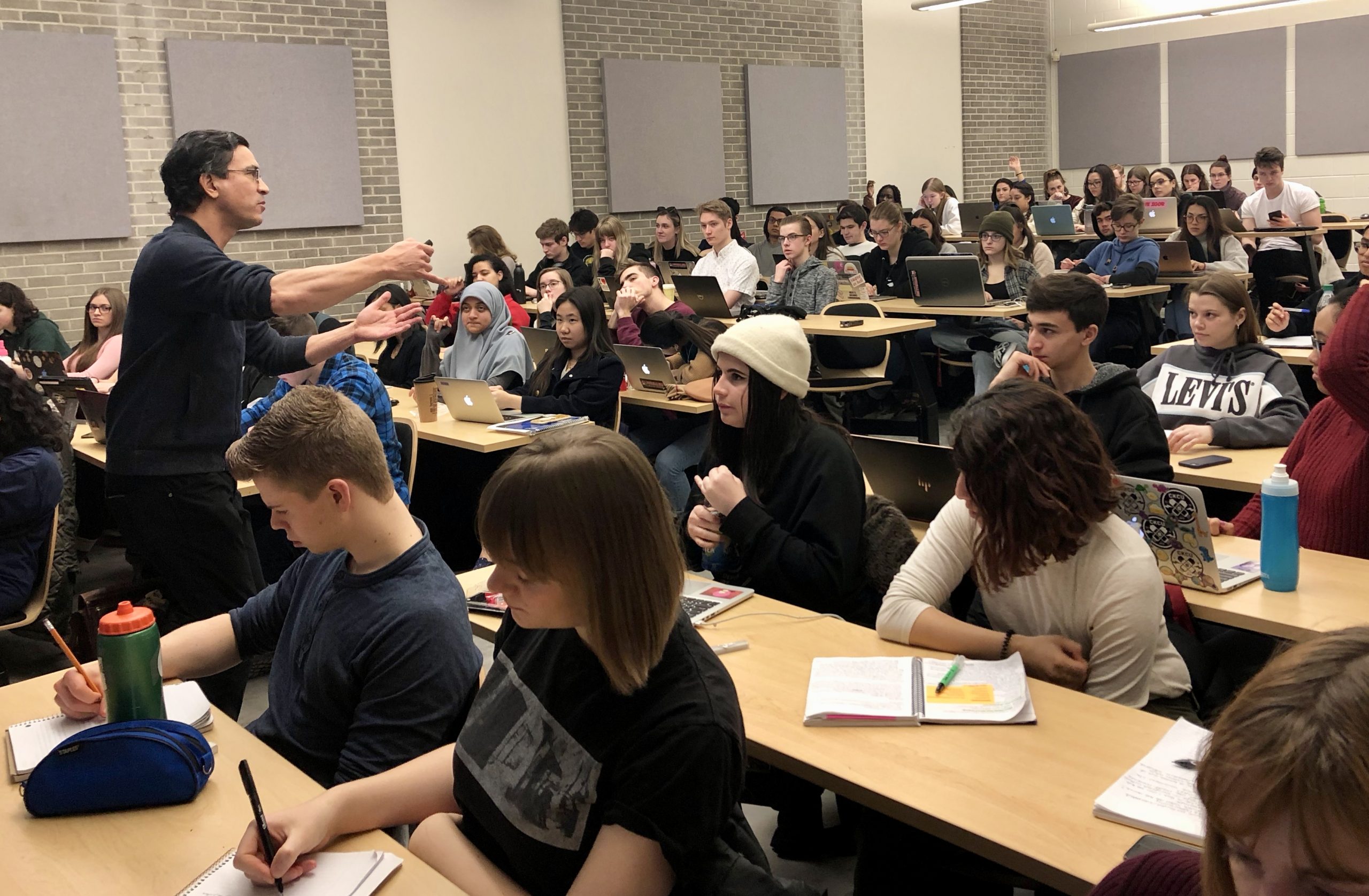
Duncan McCue in the classroom at Carleton during one of his stints as a visiting lecturer
Over the years he developed a unique online resource, Reporting in Indigenous Communities, which inspired his latest work, a new textbook called Decolonizing Journalism: A Guide to Reporting in Indigenous Communities. McCue is also the author of The Shoe Boy: A Trapline Memoir, which recounts a season he spent in a hunting camp with a Cree family in northern Quebec as a teenager.
McCue studied English at the University of King’s College, then did his law degree at UBC. He was called to the bar in British Columbia in 1998.
McCue is Anishinaabe, a member of the Chippewas of Georgina Island First Nation in southern Ontario.
McCue’s appointment marks another step in Carleton’s action plan on equity, diversity and inclusion. The leaders of Carleton’s journalism program made clear in an open letter to students posted in 2020 that as the oldest journalism program in the country, it has a responsibility to acknowledge the role it played in the perpetuation of systemic racism in the education of young journalists and to bring about change.
“Duncan McCue’s appointment to this new position is a vital addition to the team in Carleton’s journalism program,” said the Dean of the Faculty of Public Affairs at Carleton, Brenda O’Neill.
“In response to the calls to action from the Truth and Reconciliation Commission, we are committed to making sure our journalism program does all it can to promote a greater understanding of Indigenous communities and to foster a new generation of Indigenous storytellers.”
Monday, February 27, 2023 in National Indigenous History Month, News Releases
Share: Twitter, Facebook

